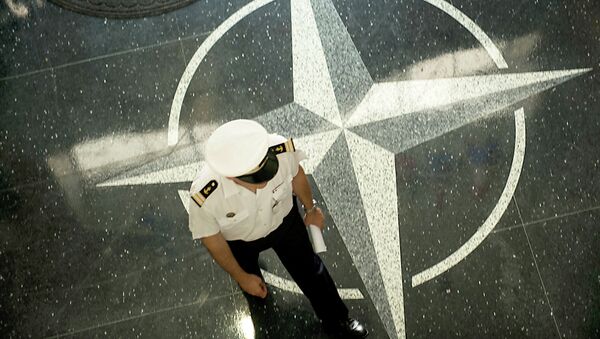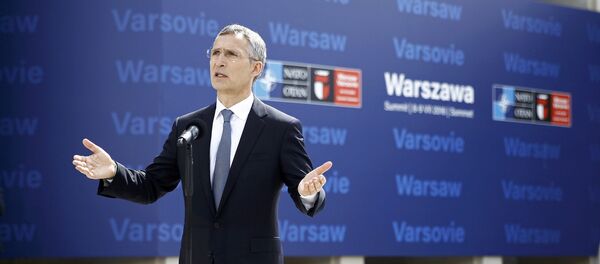“NATO's Warsaw summit shows how militarism is taking on a life of its own,” foreign affairs analyst and author Dan Lazare told Sputnik. “Central and western Europeans are growing more nervous as a consequence.”
However, Lazare pointed out that the NATO buildup and efforts to increase confrontation with Russia was taken against the will of the alliance’s two main continental member-states Germany and France.
“French President François Hollande has protested that Russia should be seen as a partner rather than a threat while German and French Foreign Ministers Frank-Walter Steinmeier and Jean-Marc Ayrault have irritated the United States by calling on the European Union to develop its own military resources,”Lazare said.
If Steinmeier and Ayrault's proposals come to pass, the effect would be to shift power away from the union's eastern flank, which is why Poland and the Baltic states are so anxious to shore up military ties with the United States, Lazare explained.
The Patriot missile deployments in Romania and Poland were clearly aimed at Russia and constituted a serious provocation to Moscow, Lazare warned.
“NATO's claim that its new forward-based missile-defense system in Romania and elsewhere is aimed not at Russia but at Iran and Syria is laughable,” Lazare added.
The decision in Warsaw to invite the unstable former Soviet republic of Georgia to join NATO was even more ominous, Lazare cautioned.
“The invitation that NATO foreign ministers extended to Georgia to join the alliance on Saturday meanwhile couldn't be more dangerous,” Lazare claimed.
Lazare recalled that the invitation came just eight years after then-Georgia President Mikheil Saakashvili — now mayor of Odessa in US-backed Ukraine — launched an ill-planned and unsuccessful bid to reconquer the breakaway province of South Ossetia at the urging of US neoconservatives.
Independent Institute Center on Peace and Liberty Director Ivan Eland told Sputnik that the Warsaw summit would encourage militarism and reckless policies in its member-states.
“NATO's surge of activities is the greatest since the Cold War ended and is in response to [Russia’s] annexation of Crimea and destabilization of eastern Ukraine. But one could argue these two events were caused by NATO's relentless expansion west to the borders of Russia,” Eland explained.
Tensions across Europe had also been stirred up by then-US President George W. Bush informal pledge to bring Georgia and Ukraine into NATO and US attempts to foster unrest in the then pro-Russian Ukraine, Eland recollected.
On Sunday, Russian Foreign Ministry spokeswoman Maria Zakharova said NATO continues to ignore security risks posed by the forced deployment of its missile defense systems in Europe. She also said that Moscow expects explanations from NATO on the Alliance's decision to bolster its eastern flank at the upcoming meeting of NATO-Russia Council.


